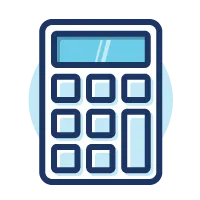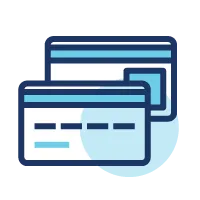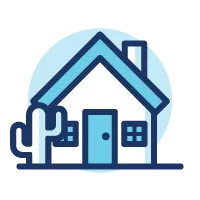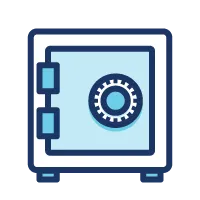Key Takeaways
- Regularly review bank statements, credit reports, and account activities to swiftly identify and address signs of potential fraud.
- If you are a victim of fraud, contact your financial institution right away to report the incident, file a police report, and notify credit bureaus.
- Protect yourself from fraud by educating yourself about common fraud schemes, securing your personal information, using strong and unique passwords, enabling two-factor authentication, and being cautious about unsolicited communications.
In today’s digital world, the risk of becoming a victim of fraud has become a harsh reality for many. Whether you’ve experienced identity theft, credit card fraud, or more complex schemes, being a victim of fraud can be horrible and inconvenient. Here we’ll guide you through how to identify, prevent and recover from fraud, so you’ll feel empowered to resume your life in the digital world.
What is Bank Fraud?
Bank fraud encompasses a range of activities where fraudsters engage in deceptive practices to gain unauthorized access to your financial accounts. This can involve stolen personal information, forged checks, or unauthorized electronic transactions.
Bank Fraud Examples
What counts as bank fraud? These are some common bank fraud examples to be aware of:
- Phishing attacks: You’ve likely seen these attempts in your email inbox or from suspicious callers. Fraudsters often use deceptive emails or websites or say they’re from a well-known company (like your bank) to trick you into divulging sensitive information like your passwords or credit card numbers.
- Identity theft: Criminals may steal your personal information to open new accounts, make purchases, or even commit crimes in your name.
- Credit card fraud: When a fraudster has your credit card information, they may use it unauthorized for purchases online or over the phone.
- Account takeover: Criminals may gain access to your bank accounts, change your contact information, and conduct authorized transactions.
All of these bank fraud examples can be devastating and inconvenient. Let’s look now at how to recognize if something like this has happened to you.
How to Identify Fraud Has Taken Place
Recognizing that you’ve been a victim of fraud quickly after the action has taken place will help things from escalating. Be vigilant and look out for the following signs:
- Unexplained transactions: Regularly review your bank statements for any unfamiliar or unauthorized transactions.
- Unexpected account changes: If you receive notifications about changes to your account that you did not initiate, it may be a sign of fraud.
- Credit report discrepancies: Check your credit report regularly for any accounts or activities that you didn't authorize.
- Unusual communication: Be suspicious of unexpected emails, calls, or messages requesting personal information or payment. When in doubt, hang up the call and contact your bank directly through the trusted number on the back of your credit/debit or account statement.
What to Do if You Are a Victim of Fraud
Here is your fraud recovery checklist:
- Contact your financial institution immediately: Report the fraudulent activity to your bank or financial institution. Freeze or close compromised accounts to prevent further unauthorized transactions.
- File a police report: Contact your local law enforcement agency and file a report. This documentation can be crucial in the recovery process.
- Alert credit bureaus: Place a fraud alert on your credit reports to prevent further unauthorized accounts from being opened.
- Update passwords and security information: Change passwords for all affected accounts and enable two-factor authentication where possible.
- Monitor accounts closely: Keep a close eye on your financial statements and credit reports for any suspicious activities.
Benefits you can bank on.
Benefits Checking members get access to dark web monitoring and identity theft reimbursement insurance up to $25,000.
7 Steps to Take to Prevent Fraud from Happening
If you’ve been a victim of fraud, you know you never want to experience it again. It’s time to put in the work to protect yourself from scammers. Here’s what you can do.
- Educate yourself: Stay informed about the latest fraud schemes and educate yourself on how to recognize phishing attempts and other scams.
- Secure your personal information: Safeguard your personal information and avoid sharing sensitive details online or over the phone.
- Use strong passwords: Create strong, unique passwords for each of your accounts and update them regularly.
- Enable two-factor authentication: Add an extra layer of security to your accounts by enabling two-factor authentication where available. NEVER provide these codes to anyone.
- Regularly monitor your accounts: Frequently review your bank and credit card statements for any unusual transactions. Maybe you set aside a certain time each week or month to dedicate to this review.
- Be cautious with emails and messages: Avoid clicking on suspicious links or providing personal information in response to unsolicited emails or messages.
- Check your credit reports: Regularly check your credit reports for any unusual activity and promptly address any discrepancies.
Pro Tip: Be wary of suspicious phone calls claiming to be your financial institution. OneAZ will NEVER directly call you to verify account information on suspected fraud or for any other purpose requesting identifier account information.
Victim of Fraud: Frequently Asked Questions
What is the first thing you should do if you become a victim of fraud?
The first step is always to contact your financial institution immediately. Report the fraudulent activity and work with them to secure your accounts. This helps prevent further unauthorized transactions and initiates the recovery process.
What can I do if I've been a victim of fraud?
Take immediate action by contacting your financial institution, filing a police report and notifying the credit bureaus. Update your passwords for the affected accounts, monitor your financial statements closely, and consider placing fraud alerts on your credit reports to prevent additional unauthorized activities.
Do fraud victims get money back?
In many cases, financial institutions have fraud protection policies that may cover losses resulting from unauthorized transactions. If you get reimbursed depends on various factors, so it's important to report the fraud promptly and accurately and work closely with your financial institution to understand your fraud recovery options.
How do I recover money from fraud?
You need to collaborate with your financial institution and law enforcement. Provide all the necessary documentation, such as a police report, to support your case. Additionally, working with credit bureaus and staying vigilant about your account activities can help you in the recovery process. Be proactive and persistent in pursuing a resolution with both your financial institution and relevant authorities.
By understanding what bank fraud is, recognizing its various forms, and taking immediate action when you suspect foul play, you can mitigate the impact and protect yourself from future incidents. Remember, staying vigilant and proactive goes a long way in safeguarding your financial well-being in our increasingly interconnected world.
APR = Annual Percentage Rate















